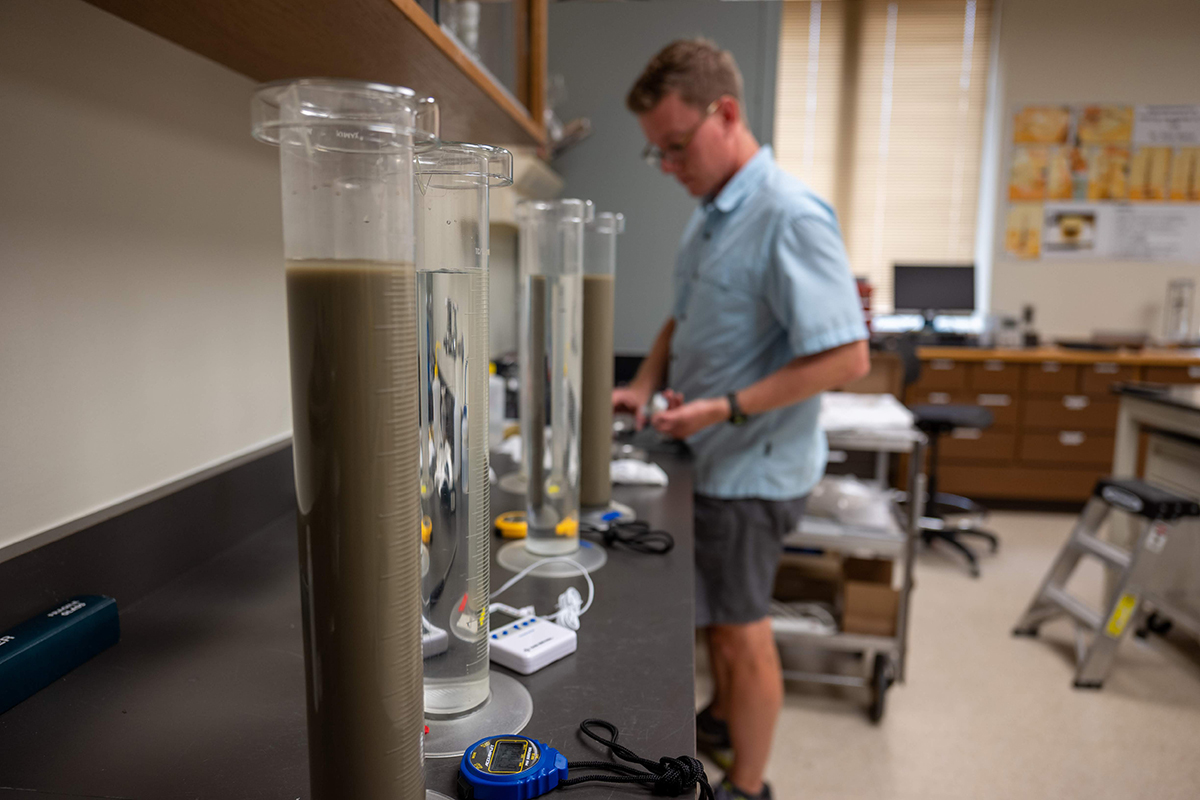Graduate Programs

The Department of Geology and Geophysics at Texas A&M University strives for a balanced program of research, undergraduate and graduate teaching, and outreach and service. With programs in both geology and geophysics the student has the opportunity to explore the basic principles of geology with a significant focus on research investigations, or to dive into geophysics, an area of scientific inquiry that deals with the physical state of the planets and with the dynamic physical processes that act on and within the planets.
Graduate Degrees in Geology
Graduate work in geology is offered at both the Master of Science (M.S.) and Doctor of Philosophy (Ph.D.) levels. Programs are designed to provide the student with an understanding of the fundamentals of geology and related disciplines. Research investigations comprise a significant part of each program. The M.S. degree is normally granted as thesis option only. Opportunities for research at both the M.S. and Ph.D. levels are available in petroleum geology, sedimentology and stratigraphy, structural geology, tectonophysics, deep crust and mantle dynamics, isotope geochemistry, paleoclimates and climate change, paleobiology and paleoecology, hydrogeology and environmental geology and geochemistry.
Graduate Degrees in Geophysics
The degrees of Master of Science (M.S.) and Doctor of Philosophy (Ph.D.) are also offered in geophysics. Geophysics includes all areas of scientific inquiry that deal with the interpretation of largely indirect observations concerning the physical state of the interior and dynamic physical processes that act within the planets. Sedimentary basins, petroleum systems, tectonically active zones, volcanic regions, the seafloor, the deep interior and the core, and the near-surface critical zone all lie within the province of the geophysicist. To work effectively in any of these areas requires considerable depth and breadth of understanding of both physical and geological principles as well as proficiency in applied mathematics and computational techniques. Thorough undergraduate training in an earth or physical science is ordinarily regarded as a necessary prerequisite for advanced study.
Graduate Certificate
The Graduate Certificate in Petroleum Geoscience is an interdisciplinary program in the Department of Geology and Geophysics designed to enhance both critical thinking and the technical skills that serve as the scientific foundation for practicing petroleum geoscience. The program requires a minimum of 18 semester credit hours from Geology and Geophysics and optionally Petroleum Engineering as part of a regular graduate program. In addition, workshops, lectures and field trips enable students to learn about pressing scientific problems in petroleum exploration and production. Students are required to take a core of courses including reflection seismology and seismic interpretation, sequence stratigraphy and basin analysis, 3-D structure and rock properties. One seminar per year is required. In addition, students must choose at least one course from an approved list of supporting courses in both the Department of Geology and Geophysics and Petroleum Engineering. The Certificate is conferred upon successful completion of a M.S. or Ph.D. degree program in Geology or Geophysics including the required courses. For detailed information please contact the graduate director.

Julia Reece
Chair, Graduate Admissions Committee
Phone: (979) 458-2728
Email: jreece@geos.tamu.edu
Office: Halbouty 251
